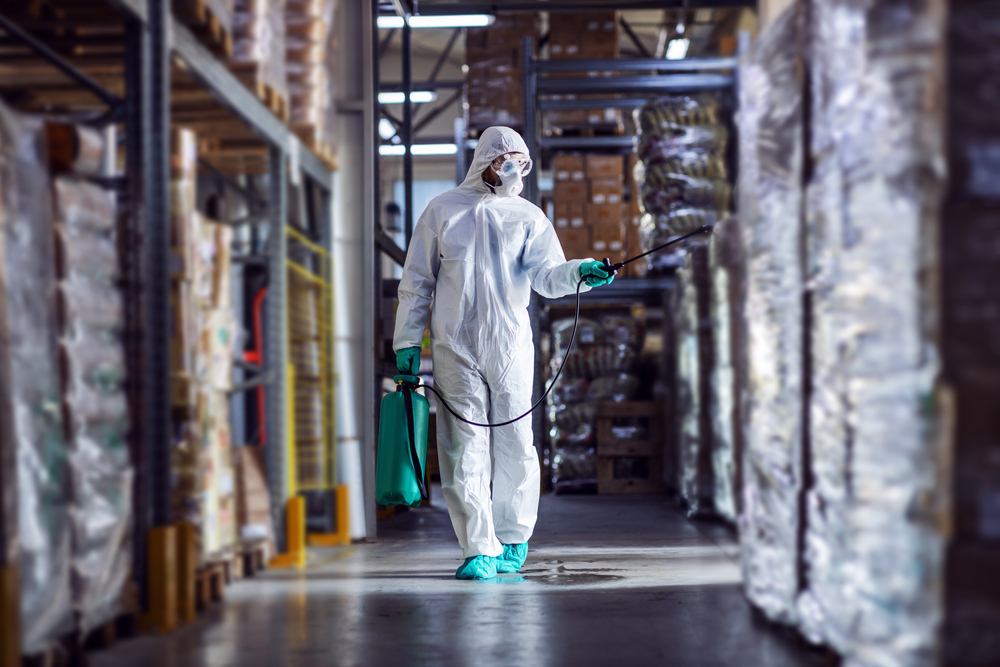In the world of food production, cleanliness is not just about maintaining appearances — it’s a fundamental necessity. While janitors play an essential role in general cleaning and upkeep, food manufacturing plants require a specialized level of cleanliness that goes beyond routine janitorial duties. This is where professional sanitation teams come in. They are not merely cleaning; they are safeguarding public health, ensuring regulatory compliance, and preserving the integrity of the food supply chain.
1. The High Stakes of Food Safety
Food manufacturing plants are responsible for producing items that will be consumed by the public. This direct connection to public health makes them uniquely vulnerable to contamination risks. If harmful pathogens such as Salmonella, E. coli, or Listeria infiltrate the production process, the consequences can be severe — ranging from mass recalls and lawsuits to illnesses or even fatalities. Janitors may be skilled at general cleaning, but they typically lack the training and protocols needed to prevent these kinds of contamination threats.
2. Sanitation Teams Are Trained for Food Safety Standards
Sanitation professionals in the food industry are trained in Good Manufacturing Practices (GMP), Hazard Analysis and Critical Control Points (HACCP), and other food safety protocols mandated by organizations such as the FDA and USDA. They understand:
-
Which sanitizers and disinfectants are food-safe and how to apply them correctly.
-
How to document sanitation processes for audits and inspections.
This technical knowledge is critical in environments where even microscopic contamination can be catastrophic.
3. Regulatory Compliance Requires Detailed Sanitation Protocols
Food manufacturing is one of the most highly regulated industries when it comes to cleanliness. Regulatory bodies such as the FDA, USDA, and local health departments require strict documentation and standard operating procedures (SOPs) for cleaning and sanitizing production areas. Sanitation crews are trained to follow these SOPs to the letter. Janitorial services, on the other hand, may not have the compliance knowledge necessary to meet these standards, potentially putting the entire operation at risk.
4. Specialized Equipment Requires Specialized Cleaning
Many food plants use sophisticated equipment like mixers, conveyors, slicers, and packaging machines. Cleaning these machines requires disassembly, specialized tools, and the knowledge to clean without damaging sensitive components. Sanitation teams are trained to handle this complexity safely and efficiently — janitors, unless specially trained, are not.
5. Microbiological Testing and Preventative Controls
Routine janitorial work doesn’t usually involve microbiological testing or environmental monitoring — essential practices in food sanitation. Sanitation teams use swab testing and ATP meters to verify the effectiveness of cleaning efforts and to detect microbial risks before they escalate. This proactive approach is critical for identifying contamination before it affects food products.
6. Prevention of Cross-Contamination and Allergen Control
Sanitation in food manufacturing is not just about cleanliness — it’s also about control. Allergens, for example, are a major concern in modern food processing. Sanitation teams are trained to avoid cross-contact and follow allergen-specific cleaning protocols that janitorial services may not be equipped to handle.
Food manufacturing plants cannot afford to treat cleanliness as just another maintenance task. The difference between janitorial work and sanitation lies in the level of expertise, compliance, and attention to detail. That’s why at LACOSTA our Industrial Sanitation and Cleaning team members are specially trained for the rigorous demands of Food Manufacturing environments. We ensure that our teams have both the skills and the dedicated specialty equipment to ensure that our customers get the top level service they need to support safety, regulatory compliance, and product quality.


